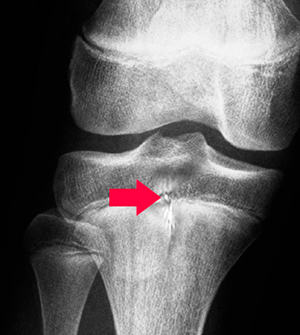
What are Growth Disturbances?
“Growth disturbances” is a broad term employed to describe several causes and effects of medical problems related to a child’s inadequate growth. Insufficient growth may be a result of an underlying health condition such as hypothyroidism or growth hormone deficiency that can prevent a child from developing normal height, weight, sexual maturity, and other growth features. Growth disturbances are also referred to as growth problems, growth disorders, or growth delays.
Causes of Growth Disturbances
Growth disturbances can have several causes. Some growth problems may occur due to genetic reasons, while others may occur due to hormonal disorders, systemic illnesses, or poor absorption of food nutrients. Some of the common causes of growth disturbances include:
- Skeletal abnormalities: There are various bone disorders (more than 50) that can affect your child’s height and growth, several of which are genetic in origin. The most common one is achondroplasia; a type of dwarfism in which the child's legs and arms are short in proportion to their body length, while the head appears large and the trunk appears normal in size.
- Growth hormone deficiency: The pituitary gland located at the base of the brain produces various hormones, including growth hormone. In normal circumstances, growth hormone promotes the growth of body tissues. However, children with a complete or partial growth hormone deficiency are unable to have a sustained healthy growth rate.
- Hypothyroidism: Children or babies with hypothyroidism have an underactive thyroid gland in which the body does not produce sufficient thyroid hormones. Sufficient thyroid hormone production is extremely important for normal bone growth. Delayed growth is a potential sign of hypothyroidism.
- Precocious puberty: This is a hormonal condition which most commonly causes accelerated growth with a tall height when compared with other kids of the same age, but growth ceases at an early age. As a result, children with precocious puberty appear short as adults.
- Familial short/tall stature: This means a child’s short or tall stature is a part of her or his family's pattern of inherited short or tall height.
- Constitutional growth delay: Kids with this medical condition grow at a normal rate but are shorter than average. They normally have a delayed bone age, in which their bones develop at a slower pace than their age. They also attain puberty later than their peers, leading to a below-average height in the initial teenage years, but tend to catch up with their peers in adulthood.
- Systemic illnesses (Illnesses that affect the whole body): This includes digestive tract disorders, heart disorder, kidney disorder, lung disorder, diabetes, chronic severe stress, or constant malnutrition. Any of these medical conditions can cause problems with growth.
- Turner syndrome: This is a genetic disorder that affects only females and is caused by one missing or abnormal X chromosome. The condition causes delayed or no puberty and very poor growth.
- Down syndrome: This is yet another common genetic disorder in children that causes short stature and poor growth. The condition is caused by the presence of an additional 21st chromosome.
Diagnosis of Growth Disturbances
In order to diagnose growth disturbances, your endocrinologist or paediatrician will look for signs of several potential causes of growth problems and short stature. Blood tests may be conducted to look for chromosomal or hormonal abnormalities and to rule out other disorders associated with growth problems. A bone age X-ray may be conducted for assessment of the child’s skeletal maturity, and an MRI scan may also be ordered to assess the pituitary gland for any abnormalities.
To evaluate the capacity of the pituitary gland to manufacture growth hormone, your physician may perform a growth hormone stimulation test. This test involves the administration of medications to the child to cause the pituitary gland to produce growth hormone and then withdrawing samples of blood over time to evaluate growth hormone levels.
Treatment for Growth Disturbances
Treatment for growth disturbances will depend upon the type of growth problem that your child is affected with. If a specific medical condition is causing growth problems, then treatment to that medical condition may alleviate growth problems resulting in improved growth.
For instance, if your child is diagnosed with growth failure due to hypothyroidism, your physician may administer thyroid hormone replacement pills to treat the condition.
If your child is diagnosed with Turner syndrome, kidney problems, or growth hormone deficiency, then administration of growth hormone injections may help your child reach a normal height milestone.
There are many other potential underlying causes that can result in growth delays than the ones mentioned above. Depending upon the specific cause, there may be other treatment methods available to rectify your child’s delayed growth. Please talk to your physician for more information about how you can help your child reach his or her normal growth milestones.






